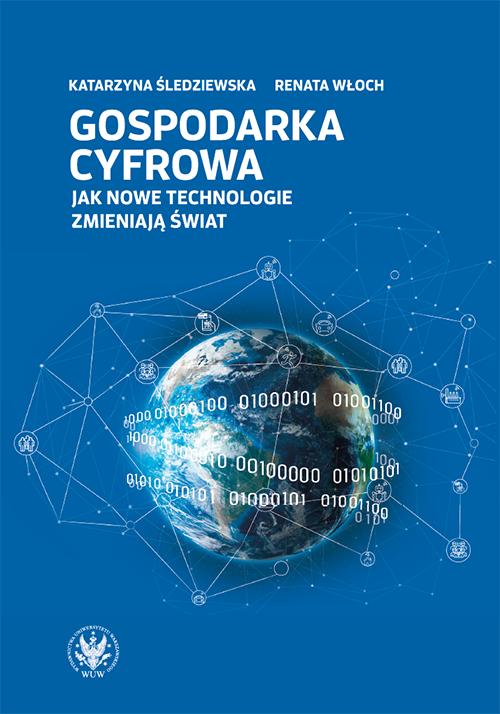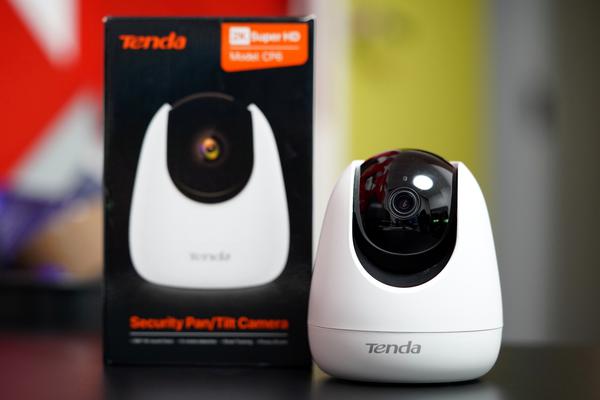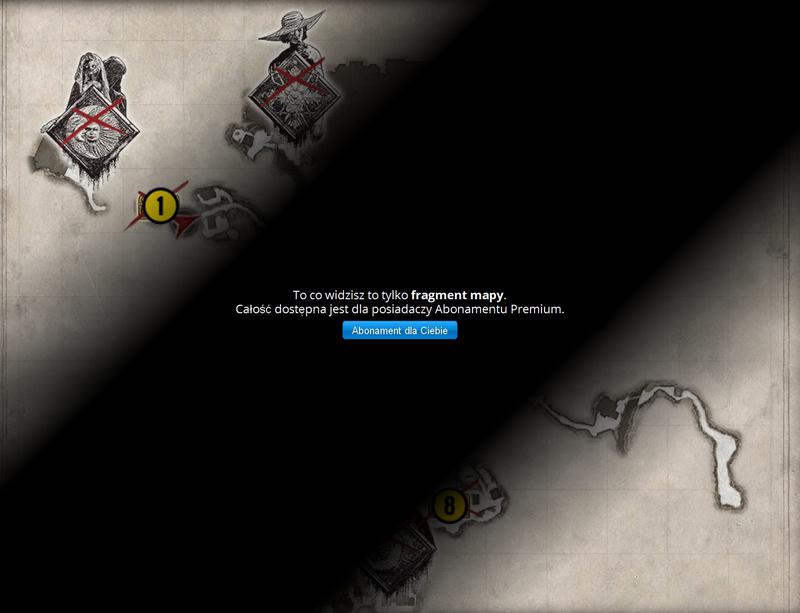We are all prisoners of new technologies and economic development
Share on FacebookShare on Twitter Panoptykon exists. It was created as a combination of new technologies and economic development with low respect for privacy and the possessiveness of the state. In his opinion, life is not so much about truth as about utility, and the key principle of morality is "the greatest happiness for the greatest number of people." One of the many ideas that dawned on the utilitarian mind of the philosopher was the construction of a panopticon. Bentham named the design of a prison where a guard could observe each inmate at any time from a single location. They are aware of this, but they do not know whether they are being watched at the moment. The purpose of building the panopticon was, as Bentham wrote, to improve morals, maintain the health of prisoners, and above all to reduce the costs of prison for the public budget. Economically. Practically. Reasonably. And in accordance with the principle of maximizing happiness in society - the prisoners, i.e. the minority, will be dissatisfied, but the rest of society will feel better. The encyclopedic notes on the panopticon end with the statement that the project was never fully implemented. But that's not true. The panopticon exists. It's not a physical building, but that doesn't take away from its reality. It was created over the last few decades as a combination of new technologies and economic development with low respect for privacy and the possessiveness of the state. And, unfortunately, we are all its prisoners. First step: privacy at a discount It might seem that people should value their privacy highly. After all, everyone has secrets that they would like to keep from the prying eyes of others. And it's not just about shameful secrets. The secret may be our feelings and reflections written down somewhere - even in letters. The secret may be the cake recipe that sets my baking apart from those of other chefs. The secret may be such a sphere of our lives, the existence of which we want to keep only for ourselves because of the sense of uniqueness, psychological comfort or safety of our loved ones. Many Polish millionaires from the list of the richest do not like to share their private lives - not because they have something to hide, but because excessive media attention to their private property and family can get them into awkward situations, or even worse - attract the attention of thieves or kidnappers. And in fact, if you ask a random person if privacy is important to them, they will answer that of course it is. Sometimes he can even get offended by such a stupid question. However, words are one thing and actions are another. In practice, people do not value privacy as much as they declare. They often don't appreciate it at all. And it has been so since the beginning of time. In the earliest forms of tribal life, privacy was almost non-existent. It was only with the progress of civilization that the word "mine" was created, replacing "our" and combining with the firm "It's nothing to do with you". The American philosopher and apologist for capitalism, Ayn Rand, even argued that "civilization is progress towards a society of privacy." If you put it that way, modern society is no longer civilized. This is clearly visible on social media platforms. In 2014 alone, their users published 1.8 billion photos a day. Among them - apart from cats - photos of children, cars, houses, social meetings, important life events. Recently, thanks to the popularization of live broadcasts, which can be conducted by anyone with a smartphone, people even publish reports from eating everyday meals. Photos and videos come with other information that we leave about ourselves online. When registering for this or that site, we provide age, name, sometimes even address, credit card number and characteristics of our interests. We share with the world all our prose of life. And here's a surprise - the world is interested in her. Because it is in our nature to be interested in what and how others do. It is hard for us to resist the temptation to peek - especially since if we wanted to be consistent in our declarations about how important privacy is to us, we would have to take radical measures: delete our Facebook, Google and Instagram accounts, pay a specialist company to cover our traces on the web and finally disconnect the internet. Few, however, decide to do so. As a rule, it is exactly the opposite: if we receive the right encouragement, we are able to give up our privacy completely voluntarily. The second step: the all-seeing eyebut at the same time allowed various entities to collect detailed data about your behavior? NO? Never? Because this is too far-reaching interference in privacy and autonomy? Good. The Businessinsider.com portal describes the Swedish start-up center Epicenter, whose employees allow it without much resistance. A chip implanted in the hand opens doors, activates office printers, enables payments in the company cafeteria. You don't need to have a magnetic card or wallet with you - just move your hand. "Chip implantation has become so popular that special events are even organized for those who opt out," the authors of the article write. They also quote one employee, 47-year-old Fredric Kaijser: "People ask if I'm microchipped. I say why not?” Well, maybe because, Mr. Fredric, the chips can be hacked? This means that someone can access very detailed information about you, and in the future, when computers are even more closely connected to our bodies, maybe even yourself? "For me, it's a matter of trying out new things," Kaijser explains blithely. It's understandable that private companies are pushing for solutions that are invasive for the privacy of their employees - it makes the production process more efficient. The pressure to control the use of workers' working time is particularly visible in various types of logistics centers, where every move and every second is valuable. Jeremy Bentham himself predicted that the basic idea of the panopticon could serve not only the prison system, but also "factories, workshops, poorhouses, field hospitals, manufactories, hospitals, madhouses and schools", i.e. all those places where more effective supervision makes it easier to function. What Bentham didn't anticipate was how far technology would surpass his imagination. He did not foresee how precisely it would be possible to observe people, and above all, that they themselves would willingly submit to this observation - because, in one way or another, we all allow ourselves to be chipped by participating in the digital economy. Are we sure that no one is watching us with our own laptop camera? Or that some virus program is not currently analyzing the contents of our computer, phone or fridge? Or maybe someone is just rummaging in the history of our e-account? We are witnessing the birth of the Internet of Things, i.e. arming with sensors and communicating with each other various devices of everyday use - from watches on the wrist through cars, household appliances, televisions to neighborhood monitoring and devices controlling the level of sugar in our blood. When the Internet of Things is fully developed, a sufficiently powerful computer will be able to describe our life in every detail like an all-seeing eye. Only our thoughts will remain a mystery to him. It is also possible that when he finally realizes fully that even in our apartments we are not completely alone and the walls really do have ears (and eyes), our minds will also start to function differently, and even that we start to behave differently as a result. Thomas McMullan in The Guardian, in the text "What the Panopticon Means in the Age of Digital Surveillance," writes: "In the age of heart rate monitors in watches and GPS devices in shoes, a new light shines on us. Will we feel completely naked under the gaze falling from some central tower of the panopticon? Maybe not, but we're definitely going to feel censored.” When you feel censored, you're not being at ease, and that's entirely in line with Bentham's concept. Panopticon was supposed to reform customs... The third step: entrusting the care of the state If we were to try to diagnose the problem here, we would have to say that the biggest threat to our privacy is the market or simply capitalism. It was he who produced the tools for violating it, and it is in the interest of market players to know as much as possible about others. Do we need to limit this market somehow? It would be difficult to make a bigger mistake. The very fact that companies want to control their employees during their work (especially in the case of jobs where the key is to efficiently perform repetitive tasks) and that they want to know as much as possible about their customers - both existing and potential ones - is completely natural and not is a threat to us. This practice is as old as the history of economic exchange and is implicitly accepted by us. Why? Because it can be a blessing for us. Mrs. Jadzia, the saleswoman at the local greengrocer, knows that you always buy wholemeal rolls in the morning. So she is well stocked with them every day and you don't even have to ask for them, because Mrs. Jadzia packs them into her purse as soon as you cross the threshold of her shop. Large retail chains do the same thing as Mrs. Jadzia.However, due to the scale of their operations, they do not know their customers by name. In order to learn their preferences and better meet their needs, they use, for example, big data technologies. In their statistics, we are an anonymous consumer, but with specific characteristics and a specific history of shopping choices. And while Mrs. Jadzia can still gossip about the fact that Kowalski drinks too much, no one at Google's headquarters will talk about the fact that this or that Internet user often orders viagra or spends far too much on comic books. Even if the supermarket analyzes your purchase history with your payment card, and Google's algorithms rummage through your email inbox looking for the most frequently used phrases, all this is done to effectively match supply with demand. Yes, there are cases of abuse. As Marcin Maj writes on the Di.com.pl portal, last year The Center for Investigative Reporting revealed, for example, that Uber employees searched for travel data of celebrities and politicians and helped friends "in harassing ex-girlfriends or spouses." Of course, there are appropriate paragraphs in the Penal Code for such situations, but it can be safely assumed that these abuses will be minimized by the company itself. It is in Uber's long-term interest - just like in the interest of all businesses - to have a good reputation among customers and to develop internal mechanisms to prevent pathologies. They are called in English compliance procedures. The word in this context means compliance with the law. A true panopticon in the sense of a Bentham prison is not created solely as a result of our nonchalance towards our own privacy or the greed of market players. It emerges only when the third element enters the game - the state. The state greedily collects data about the lives of citizens, uses every possibility to track and control them, takes over the technologies that allow it from the private sector, and creates them itself. However, it does not do this to better fulfill its responsibilities towards citizens. If a private company is interested in your life, you can assume that they are doing it to offer you a better product. If it is a country, then you may start to worry - you are somehow suspicious to it. The government wants access to our privacy for three reasons. The first is our money. The second is power over us, and the third is paternalism. Also remember that, unlike private corporations, the state has a monopoly on the use of force and physical coercion. You can't help the existence of the state and its power over you. You can uninstall the Uber app without consequences, you can delete your Facebook account, log out of your email and stop shopping on Allegro or Amazon. On the other hand, the state (some kind) is everywhere, and emigration to Mars is still in the sphere of our dreams. You cannot unsubscribe from it. Incapacitation. It's already happening. Let's look from this perspective at what is happening in India, which is step by step building a system that allows for total surveillance and control of citizens. India is a country where the government has been implementing the ideal of a cashless society for about a decade. “I was there recently. Even at the street market, you pay by phone - recalled Spanish macroeconomist prof. Pedro Videla. Even in 2007, almost half of the population of the subcontinent did not even have a birth certificate, which completely prevented the development of the banking market. The government has decided to provide every Indian with a digital identity card based on fingerprints and retina scan. Progressive for a country with a GDP per capita of approx. 5-6 thousand. down, right? But that's nothing. The government has launched special banks that hold deposits on very attractive terms. Thanks to this, almost 300 million new bank accounts appeared in three years. Eventually, the government began to promote modern cashless payments while reducing the role of cash. “Interestingly, the new notes that were supposed to replace the withdrawn 50 and 100 rupee denominations turned out to be so large that they cannot be withdrawn from standard ATMs. It's hard to say whether this was a deliberate action by the government, but people decided that they didn't really need cash anymore, explains Videla, personally an enthusiast of such solutions. It is obvious that the elimination of cash equals the loss of privacy. All our transactions are monitored in such a system, and we no longer have the physical opportunity to protest in the form of withdrawing our savings from the bank. Now let's go back to the three reasons mentioned. Money? Cashlessness serves the state finances, reducing the shadow economy. It's not absolutely good. If the state becomes too tax oppressive, there will be nowhere to run. Authority? Well. Full knowledge ofhow citizens spend their money, gives those in power the ability to blackmail them (why did you buy a diamond ring, pansy, if you didn't give it to your wife?), or limit the use or even block a person's funds altogether. It is not difficult to imagine a scenario in which the government suppresses the opposition in this way. paternalism? If society wants the government to pull them out of poverty with the magic wand of social programs, to care for them and protect them from the injustice of the market and fate, it must give politicians the right powers of access to their lives and goods. If society perceives itself as a child in need of a father, it must accept that the father wants to know as much as possible about him, and in the event of disobedience, punish him. I would venture the thesis that it is the paternalism that dominates in thinking about the role of the state that lies at the source of the state's interest in our privacy. It encourages governments to increase social spending and, as a result, to tighten tax rigor. It extends the power of the state to ever new spheres of our lives and gives reason to monitor our behavior, analyze our views and influence them. Paternalism didn't come out of nowhere. This philosophy has broad democratic legitimacy. Parties proclaiming the need to limit the role of government and taking responsibility for one's own life by the individual are not particularly popular in democracies. Those who promise us to take care of our problems and extend a helping hand to us are popular. By definition, paternalism limits freedom and makes it cease to be our right and become a privilege that is granted to us if someone at the top deems it appropriate, and taken away if we do not meet the standards arbitrarily imposed on us. Can this be remedied? Well, there is no point in turning the Vistula stick around. Technological progress is inevitable, and with it new ways to observe, control and collect data about an individual. Nor will we change human nature - human weakness, naivety and inconsistency in word and deed lie in it. However, we can try to demand that the state, instead of taking responsibility for our happiness, should look after our physical safety first. We will take care of our own happiness and prosperity ourselves - in ways that we consider right. Of course, security can also serve as an excellent excuse to tighten surveillance and restrict personal freedom. This is clearly seen in the example of the war on terror. What is certain, however, is that an authority with limited powers has fewer pretexts to spy on us. A New Dystopia To reject paternalism at the political level, one must first criticize it at the social level. And for this, something is needed that will really scare us, the society - a powerful, pop-cultural vision of what can happen if we continue to build the global panopticon mindlessly. In short, a new dystopia is needed. In the twentieth century, two high-profile dystopias were created - "1984" by George Orwell and "Brave New World" by Aldous Huxley. The first presented a vision of an extremely totalitarian state in which there is no freedom and where surveillance is based on informing. The second depicted the complex caste system of society. An elite that must control the production process to maintain its status and power. It does this by dividing people into groups and conditioning them from birth and drugging them. In other words, he uses new technologies. Both books had a huge impact on the consciousness of societies in the second half of the 20th century. They became intellectual vaccines for the totalitarian urges of power. It seems that the most terrifying elements of Orwell and Huxley will be mixed in the new dystopia. However, it is still unwritten. And it will not be written until the real panopticon and the associated threat are noticed by intellectuals and creators of culture. For now, what computer geeks - hackers and programmers - are noticing by creating privacy movements in the digital world. In some places, laws are also introduced to limit the attempts of the state. For example, recently in Texas, the local government cannot rummage through citizens' e-mails that are older than 180 days. In Poland, unfortunately, privacy will soon be further eroded by state action. At the time when I was writing this article, a draft amendment to the Tax Ordinance Act was presented, imposing on all entrepreneurs (except micro-enterprises) the obligation to submit account statements to the tax office on a daily basis. This means de facto systemic disclosure of confidential transaction data of millions of customers, employees and contractors of Polish companies. A dozen or so years ago - when the Internet and electronic banking were just in their infancy - the implementation of such a requirement would have been technically impossible.









